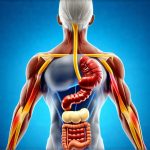Nausea and indigestion are common complaints among athletes, impacting performance and overall well-being. These symptoms can range from mild discomfort to debilitating experiences that force an athlete to stop training or competing. Understanding the potential causes behind these issues is crucial for effective management and prevention strategies, allowing athletes to maintain peak condition and avoid unnecessary setbacks. This article aims to explore the various factors contributing to nausea and indigestion in athletes, as well as practical approaches to manage them effectively.
Athletes often push their bodies to the limit, subjecting themselves to intense physical stress that can disrupt normal digestive processes. Furthermore, dietary choices made to fuel performance – sometimes involving rapid consumption or specific food combinations – can exacerbate these issues. Recognizing the interplay between training demands, nutritional practices and individual sensitivities is essential for athletes experiencing gastrointestinal distress.
Understanding Nausea in Athletes
Nausea isn’t simply a discomfort; it signals disruption within the body’s complex systems. For athletes, this disruption often stems from the physiological stress of intense exercise. The redirection of blood flow away from the digestive system toward working muscles during strenuous activity can slow down gastric emptying and lead to feelings of nausea.
The intensity and duration of exercise play significant roles. Prolonged endurance events are particularly associated with nausea due to dehydration, electrolyte imbalances, and hormonal changes like cortisol elevation. However, even shorter bursts of high-intensity activity can trigger nausea in some individuals, especially if they haven’t adequately prepared or hydrated.
Causes of Indigestion in Athletes
Indigestion, characterized by bloating, heartburn, and stomach discomfort, is frequently linked to dietary factors combined with the physical demands of sport. Rapid digestion during intense training often leads to incomplete breakdown of food, resulting in gas production and discomfort. The types of foods consumed are also important; high-fat foods and those known to cause irritation can contribute significantly to indigestion, especially when eaten close to exercise.
Physiological Factors Contributing to Digestive Issues
The body’s response to intense physical exertion isn’t limited to muscle fatigue. Exercise induces changes in gut motility – the movement of food through the digestive tract. This can range from accelerated motility causing diarrhea or slowed motility leading to constipation and indigestion. Furthermore, stress hormones released during exercise can influence gastric acid secretion, potentially worsening symptoms like heartburn or acid reflux. Dehydration is a major contributor, as water is essential for proper digestion and nutrient absorption.
Dietary Considerations and Their Impact
What an athlete eats before, during, and after training profoundly impacts digestive health. Consuming large meals close to exercise, especially those rich in fat or fiber, can overwhelm the digestive system. Similarly, certain foods – like spicy foods, caffeine, alcohol, and carbonated beverages – are known irritants that can exacerbate indigestion. Many athletes also rely on sports drinks and gels for energy during prolonged events; these often contain high concentrations of carbohydrates which can contribute to osmotic imbalances and gastrointestinal distress if not tolerated well.
Individual Sensitivities and Intolerances
Beyond generalized dietary factors, individual sensitivities and intolerances play a crucial role in digestive issues. Lactose intolerance, gluten sensitivity, or FODMAP (Fermentable Oligosaccharides, Disaccharides, Monosaccharides And Polyols) malabsorption can all trigger nausea and indigestion. Athletes should be mindful of how their bodies react to different foods and consider working with a registered dietitian to identify potential triggers and tailor their diet accordingly. Food allergies, though less common, can also present as digestive symptoms and require careful management.
Athletes experiencing persistent or severe nausea and indigestion should consult with healthcare professionals. While the strategies discussed provide general guidance, individualized assessment and tailored recommendations are essential for optimal management. It’s important to remember that digestive health is an integral part of athletic performance; addressing these issues proactively can significantly enhance both physical capabilities and overall well-being.


















